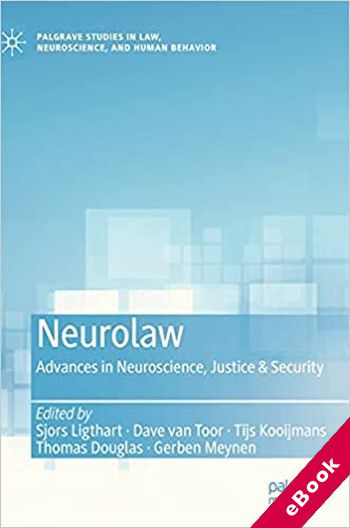
The device(s) you use to access the eBook content must be authorized with an Adobe ID before you download the product otherwise it will fail to register correctly.
For further information see https://www.wildy.com/ebook-formats
Once the order is confirmed an automated e-mail will be sent to you to allow you to download the eBook.
All eBooks are supplied firm sale and cannot be returned. If you believe there is a fault with your eBook then contact us on ebooks@wildy.com and we will help in resolving the issue. This does not affect your statutory rights.
This edited book provides an in-depth examination of the implications of neuroscience for the criminal justice system. It draws together experts from across law, neuroscience, medicine, psychology, criminology, and ethics, and offers an important contribution to current debates at the intersection of these fields. It examines how neuroscience might contribute to fair and more effective criminal justice systems, and how neuroscientific insights and information can be integrated into criminal law in a way that respects fundamental rights and moral values.
The book’s first part approaches these questions from a legal perspective, followed by ethical accounts in part two. Its authors address a wide range of topics and approaches: some more theoretical, like those regarding the foundations of punishment; others are more practical, like those concerning the use of brain scans in the courtroom. Together, they illustrate the thoroughly interdisciplinary nature of the debate, in which science, law and ethics are closely intertwined. It will appeal in particular to students and scholars of law, neuroscience, criminology, socio-legal studies and philosophy.